Getting Back to Surfing After COVID-19 Lockdown
As the COVID-19 lockdown gradually eases across Ireland and the world, surfers who have been following advice to stay clear of beaches since late March are aching to get back into the water doing what they love. Many will have found it a challenging time without the regular release of being on out on the waves, replacing life’s worries with adrenaline and the calming caress of the tide.
Even if surfing hadn’t strictly been banned in your area you still may have felt a moral responsibility to not risk spreading coronavirus or adding pressure onto health workers through injury. It wasn’t classed as an essential form of exercise and yet millions depend on it for much more than physical benefits.
“It gives life and energy,” says Ollie O’Flaherty, Big Wave Surfer and Wild Atlantic Surfboard Company Ambassador. “It’s a deep connection with nature that is vital for us in the time we live in where we are detached from nature so much due to smartphones and social media. Time to connect to breathe and feel the moment, that’s the ocean to me.”
After months of missing the experience, the feeling is shared by Paul Byrne of Dublin’s ASI Accredited Stand Up Paddle School, Irishsup. “I’ve had a few sessions on the river and just one surf but it was amazing,” he says. “What I have noticed since getting back out is my heightened connection with my environment. The birds, the leaves blowing in the wind, the smell of saltwater. Things I took for granted before now excite me. Funny, isn’t it? Please don’t ever put me back in lockdown!”
There will certainly be a renewed appreciation for the freedom we once knew, however there are still some things to keep in mind to ensure safety before rushing out to catch the nearest wave.
Am I allowed to go surfing?
The lockdown is indeed lifting in many areas but that does not guarantee beaches where you are have reopened or that surfing is allowed just yet. Countries within the UK all have different guidelines, as does the Republic of Ireland and other nations around the world. Make sure first to check relevant government and council updates in terms of where you can travel, what’s accessible and what activities are permitted, before loading up your car.
If you’re sick, stay away
With restrictions lessening and weather improving over recent weeks, the number of people back out and about has surged. It’s important not to forget that COVID-19 cases could quickly rise again as infected members of the public begin to mix more closely in popular spots. Check the World Health Organisation website for up to date information about the virus and if you’re showing symptoms do not put others at risk by heading out to surf. It may seem like there’s ample distance but unless you’ve tested negative then you shouldn’t take any chances of passing it on outside your home. The beach isn’t going anywhere!
Do some breathing exercises
If it’s been months since you’ve been in the water then understandably everything will be out of practice. Ex-rugby pro and performance and lifestyle coach Richie Norton says “we are breathing every second breath because of the ocean”, but it’s vital that surfers’ lungs are in good shape to be in it as well.
A simple exercise to help strengthen your lungs is to breathe slowly for 60 seconds, building up to a deep breath and holding it for as long as you can, before exhaling. Do this several times in one sitting each day and you will gradually increase your hold time, something that will help maintain control while battling whatever the elements throw. The short session below with Richie will teach you a few effective breathing techniques to bring calm to your body and reduce any nerves you may have.
Get yourself fit and ready
Following on from the previous point, not everyone will have been keeping themselves in prime physical condition in recent months and may need to improvise with home workouts in order to give the key muscles for surfing some much needed attention. We will be going into more detail about working on your body in our next post, but the most important areas to focus on are your core muscles for balance, upper body muscles for paddling/popping up and your glutes and quads for crouching. Without even needing equipment you can engage these muscles through things like squats, burpees, pull-ups, push-ups, lunges and crunches.
While it doesn’t hurt to also be going out running to help with your stamina, or to do weight training with professional guidance, you should use these to supplement the exercises mentioned, while getting back to a healthy diet and eating routine. Below is a great video demonstrating what you can do at home.
Have you got the right gear?
Now is the time to invest in anything that will help you have a safer, more efficient surf. Most beaches do not yet have lifeguards present so it might not be the best idea to head out where no one is around. If you do, make sure you wear a well-fitted wetsuit and a leash so you don’t lose your board, which will help keep you afloat in an emergency. Check your equipment for any damage – this includes your fins for navigating strong currents.
For colder coastlines a Wet and Dry Changing Robe will offer you convenient warmth and comfort if you’re in and out of the water and reduce the time spent hanging about in harsh conditions. Have a look at our online shop for this and other accessories which will make your surfing experience more enjoyable.

Try not to get injured
“It’s a good time to go easy on the heroics,” says Lahinch Surf School owner, John McCarthy. “From a PR point of view, it’s not a good time to be rescued by the rescue services.” To lower the chance of something going horribly wrong on your return to the water you need to know your limits and not attempt anything you’re not confident in. Check ahead to see what the weather will be like, perhaps the sea is too rough for your skill level on that day. Whatever you do, “remember to stretch and get the body moving before paddling out”, John adds. So warm up and get rid of any stiffness to avoid the easiest means of injury and subsequent negative attention.
Respect the rules
Different surfing schools and hot spots will each have their own regulations and social distancing measures in place as they adjust to the new normal of COVID-19 prevention. If you are attending any classes or locations please be aware of any guidelines and observe them for the safety of yourself and everyone else. Check their social media or website for updates or call ahead and ask. The key thing as we return to the life we’ve sorely missed is to be responsible.
Surfer Ali Bryans sums it up perfectly. “I feel at home in the sea and a part of me was definitely lost without it during lockdown. I hope that people have maybe learnt to reconnect with nature more deeply as a result of the slower and somewhat simpler way of life that lockdown has brought to us and that anyone who has found things mentally tough can make use of the healing energy from nature, and especially the sea. Get salty, breathe in the sea air and just be. I can’t wait to get back on my board properly and start catching some waves. Nothing in the world compares to that feeling. It’s home and it’s the best tool out there for resetting everything.”

















